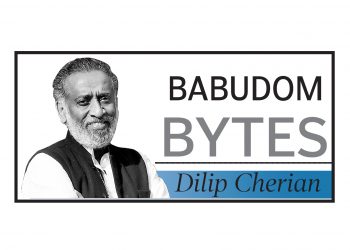I n Maharashtra’s intricate administrative landscape, where the ebb and flow of power is often measured by the stability of key personnel, the recent and somewhat enigmatic removal of Ashish Sharma, Principal Secretary attached to the office of Deputy Chief Minister Ajit Pawar, has sent ripples through the babu corridors of the state. Clearly, it is not merely a routine administrative shuffle, most observers state. Given the current complexity of the politics in the state, it’s a view that is not unfeasible. It is highly unusual for an IAS officer, especially one posted in either the CM or Deputy CM’s office, to be unceremoniously shunted out before completing a normal tenure. Sharma’s abrupt transfer not only marks the premature end of his first stint in the prestigious Mantralaya but also marks his third relocation in just six months – a puzzling pattern that has now invited scrutiny. With Ajit Pawar conspicuously absent from the Mantralaya, recovering from a bout of dengue, the transfer of his Principal Secretary has left the office in a state of inertia. Pawar’s silence has further fuelled the speculation. In the absence of official statements clarifying the rationale behind the move, the vacuum is filled with conjecture and whispers of power play behind the scenes. Ajit Pawar, so far, is still trying to find his feet after joining the BJP-led alliance government in Maharashtra. Though he was made deputy chief minister and his NCP faction bagged crucial portfolios, the deputy CM is still No. 3 in the pecking order. And Sharma’s exit seems to indicate that the current hierarchy is unlikely to change.
MEA to take a maritime call
The entry of a Chinese “spy” ship into Sri Lankan waters a while ago, despite attempts by the Ministry of External Affairs (MEA) to prevent it, has already underscored the delicate dance of diplomacy in the Indian Ocean region. Now a new challenge has emerged, demanding a strategic response from the MEA. The looming arrival of three oil tankers carrying Russian crude, allegedly sanctioned by the US, has created a piquant situation for the ministry. Although the transactions did not occur at major Indian ports overseen by the Shipping Ministry, sources have informed DKB that the potential of these ships docking at a state port raises questions about the MEA’s role in shaping India’s maritime policies. In the event of sanctions and a lapse in shipping insurance, the MEA is entrusted with the critical decision of whether to allow these ships into Indian waters, especially when dealing with non-major ports. While the protocols outlined by senior Shipping Ministry babus shed light on the procedural intricacies involved in vessel entry, the decision to greenlight or deny entry ultimately lies with the MEA. India has, so far, played neutral in the Russia-Ukraine conflict despite attempts by the US to wean it away from its old ties with Russia. This is a test case for the MEA to walk the tightrope and find a solution that does not tilt the delicate balance.
IAS officers unite against Kerala govt
This is perhaps the first time that IAS officers in Kerala have jointly sought action against a government. The Central Administrative Tribunal (CAT) has taken a firm stance against what it perceived as a lack of due process in the appointment, transfer and posting of IAS officers within the state government. An interim order issued by a CAT bench has directed the Pinarayi Vijayan government to refrain from making such decisions, without the prior convening of the Civil Services Board’s meeting. The CAT directive comes in response to a petition filed by the Kerala IAS Officers’ Association, alleging a pattern of frequent transfer and posting orders being issued without the necessary recommendations from the Civil Services Board. The petition highlights a concerning trend: the average tenure of cadre officers is well below the prescribed minimum period of two years. Even in key roles such as district collector, secretary to the government, and head of critical departments, the average tenure has dwindled to less than a year. The tribunal observed that the Kerala government neither obeyed the Supreme Court directions nor adhered to the rules and notifications issued by the Centre in the wake of the Supreme Court verdict. It also noted that no explanation was offered as to why the Civil Services Board’s meeting was not convened. The IAS officers claim that the board has become dysfunctional after only two meetings, the last of which occurred in 2015. While the tribunal has set the next hearing on January 10, the interim order has focused the spotlight on the need to adhere to established norms and procedures. The outcome of this case is being watched keenly by the babus.

